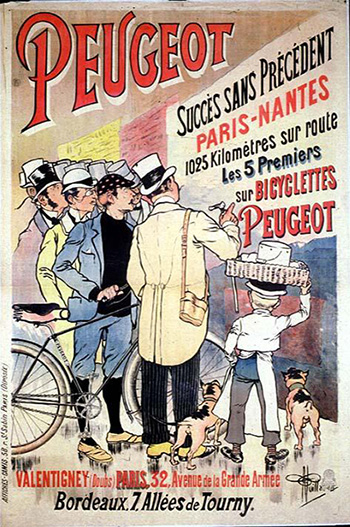H. Hazel Hahn, Scenes of Parisian Modernity: Culture and Consumption in the Nineteenth Century (New York: Palgrave, 2009), p. 149
The Development of an Advertising Industry
 As posters, brochures, and catalogues increasingly gained the upper hand over newspaper advertising from the mid-century, billposting firms grew formidable in size. They specialized not only in posting and painting murals but in research, copywriting, the gathering of addresses, and the printing and distribution of brochures and other advertising material. Targeting specific groups according to gender, class and profession became commonplace through press ads, catalogues and bill posting inspecific areas. Agencies possessed censuses breaking down the population by rent and profession. This enabled their clients to select the exact streets on which they wanted to display their posters or the addresses to which they wanted to send their advertisements through the mail, signaling the emergence of "niche advertising" already at mid-century. By 1851 "an infinite number" of entertainment posters with "extravagant" content competed for attention, attesting to the presence of the large number of entertainment venues, although the colorful, large illustrated poster didn't become commonplace until the 1870s.
As posters, brochures, and catalogues increasingly gained the upper hand over newspaper advertising from the mid-century, billposting firms grew formidable in size. They specialized not only in posting and painting murals but in research, copywriting, the gathering of addresses, and the printing and distribution of brochures and other advertising material. Targeting specific groups according to gender, class and profession became commonplace through press ads, catalogues and bill posting inspecific areas. Agencies possessed censuses breaking down the population by rent and profession. This enabled their clients to select the exact streets on which they wanted to display their posters or the addresses to which they wanted to send their advertisements through the mail, signaling the emergence of "niche advertising" already at mid-century. By 1851 "an infinite number" of entertainment posters with "extravagant" content competed for attention, attesting to the presence of the large number of entertainment venues, although the colorful, large illustrated poster didn't become commonplace until the 1870s.
At mid-century billposting as a modern profession was barely known; by the turn of the century it would grow into a powerful industry.